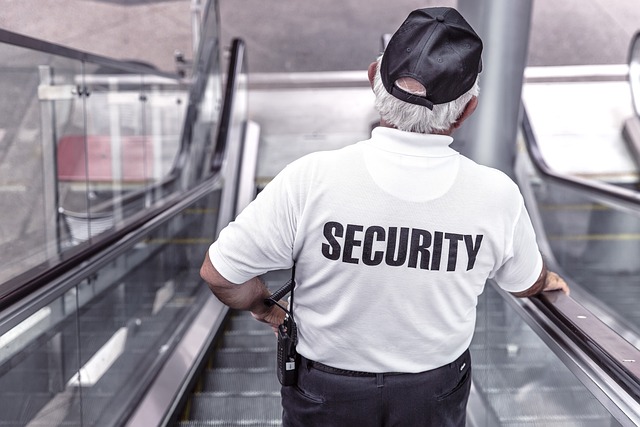Security Work Isn’t One-Size-Fits-All: Know the Roles Before You Apply
Security roles can differ greatly depending on the setting — from schools and stadiums to warehouses and airports. While all require vigilance and responsibility, each environment presents unique challenges and expectations. Some positions may involve managing large crowds during events, while others focus on controlled access or routine patrols. Understanding these differences can help individuals find roles that align with their strengths and preferences.

What are the main types of security job environments?
Security personnel are employed in various settings, each presenting unique challenges and requirements. Some common environments include:
-
Retail establishments: Malls, department stores, and supermarkets
-
Educational institutions: Schools, colleges, and universities
-
Healthcare facilities: Hospitals, clinics, and medical centers
-
Corporate offices: Business parks and high-rise buildings
-
Entertainment venues: Stadiums, concert halls, and theaters
-
Transportation hubs: Airports, train stations, and bus terminals
-
Industrial sites: Warehouses, factories, and manufacturing plants
-
Residential complexes: Gated communities and apartment buildings
-
Government facilities: Courthouses, city halls, and military bases
-
Financial institutions: Banks, credit unions, and investment firms
Understanding these diverse environments is essential for security professionals to adapt their skills and approaches accordingly.
What responsibilities do security personnel have in different roles?
The responsibilities of security personnel can vary greatly depending on the specific role and work environment. Some common duties include:
-
Access control: Monitoring entry points, checking identification, and managing visitor logs
-
Surveillance: Operating and monitoring security cameras and alarm systems
-
Patrol: Conducting regular rounds to ensure the safety of the premises
-
Emergency response: Reacting to and managing crisis situations
-
Customer service: Assisting visitors, providing directions, and answering inquiries
-
Loss prevention: Identifying and preventing theft in retail environments
-
Traffic control: Managing vehicle flow in parking areas or during events
-
Report writing: Documenting incidents and maintaining accurate records
-
Crowd management: Ensuring orderly behavior at large gatherings or events
-
Asset protection: Safeguarding valuable items or sensitive information
Each role may emphasize different combinations of these responsibilities, requiring security professionals to be versatile and adaptable.
How do different settings impact daily tasks in security jobs?
The work environment significantly influences the daily tasks and challenges faced by security personnel. For example:
-
Retail security often focuses on loss prevention and customer interactions
-
Educational security prioritizes student safety and emergency preparedness
-
Healthcare security deals with patient privacy and managing volatile situations
-
Corporate security emphasizes access control and protecting sensitive information
-
Event security involves crowd management and coordinating with law enforcement
Understanding these nuances helps security professionals tailor their approach to the specific needs of each environment.
What are some examples of workplaces where security is essential?
Security is crucial in numerous settings, including:
-
Airports: Ensuring passenger safety and preventing security breaches
-
Casinos: Protecting assets and maintaining order in high-stakes environments
-
Data centers: Safeguarding critical digital infrastructure and information
-
Museums: Preserving valuable artifacts and managing visitor flow
-
Power plants: Protecting vital energy infrastructure from threats
-
Correctional facilities: Maintaining order and safety in prisons and jails
-
Embassies: Providing diplomatic security and managing international relations
-
Hotels: Ensuring guest safety and protecting property in hospitality settings
-
Research laboratories: Safeguarding sensitive experiments and intellectual property
-
Sports arenas: Managing large crowds and ensuring spectator safety
These diverse workplaces demonstrate the wide-ranging applications of security expertise in various industries.
What skills and qualifications are needed for different security roles?
The skills and qualifications required for security positions can vary based on the specific role and work environment. However, some common requirements include:
-
Physical fitness and stamina for roles involving patrols or crowd management
-
Strong communication skills for interacting with the public and coworkers
-
Attention to detail for surveillance and monitoring tasks
-
Problem-solving abilities for handling unexpected situations
-
Knowledge of security technologies and systems
-
First aid and CPR certification for emergency response
-
Conflict resolution skills for de-escalating tense situations
-
Computer proficiency for managing digital security systems
-
Foreign language skills for international or diverse environments
-
Specialized training or certifications for specific industries (e.g., aviation security)
Aspiring security professionals should assess their strengths and interests to determine which roles align best with their skills and career goals.
What are the salary ranges for different security positions?
Salary ranges for security positions can vary widely depending on factors such as location, experience, and specific role. Here’s a general overview of salary expectations for various security jobs:
| Position | Entry-Level Salary | Median Salary | Senior-Level Salary |
|---|---|---|---|
| Security Guard | $25,000 - $30,000 | $35,000 - $45,000 | $50,000 - $60,000 |
| Loss Prevention Specialist | $30,000 - $35,000 | $40,000 - $50,000 | $55,000 - $70,000 |
| Corporate Security Officer | $35,000 - $45,000 | $50,000 - $65,000 | $70,000 - $90,000 |
| Information Security Analyst | $60,000 - $75,000 | $85,000 - $100,000 | $110,000 - $150,000 |
| Security Manager | $50,000 - $65,000 | $70,000 - $90,000 | $100,000 - $130,000 |
Prices, rates, or cost estimates mentioned in this article are based on the latest available information but may change over time. Independent research is advised before making financial decisions.
Security work offers a diverse range of opportunities for individuals seeking a career in protection and safety. From retail environments to high-security government facilities, the field encompasses a wide variety of roles and responsibilities. By understanding the differences between security job environments, the types of locations hiring security personnel, and how settings impact daily tasks, aspiring security professionals can make informed decisions about their career paths. Whether patrolling a corporate office, managing crowds at a stadium, or safeguarding sensitive information in a data center, security personnel play a crucial role in maintaining order and safety across various industries.




